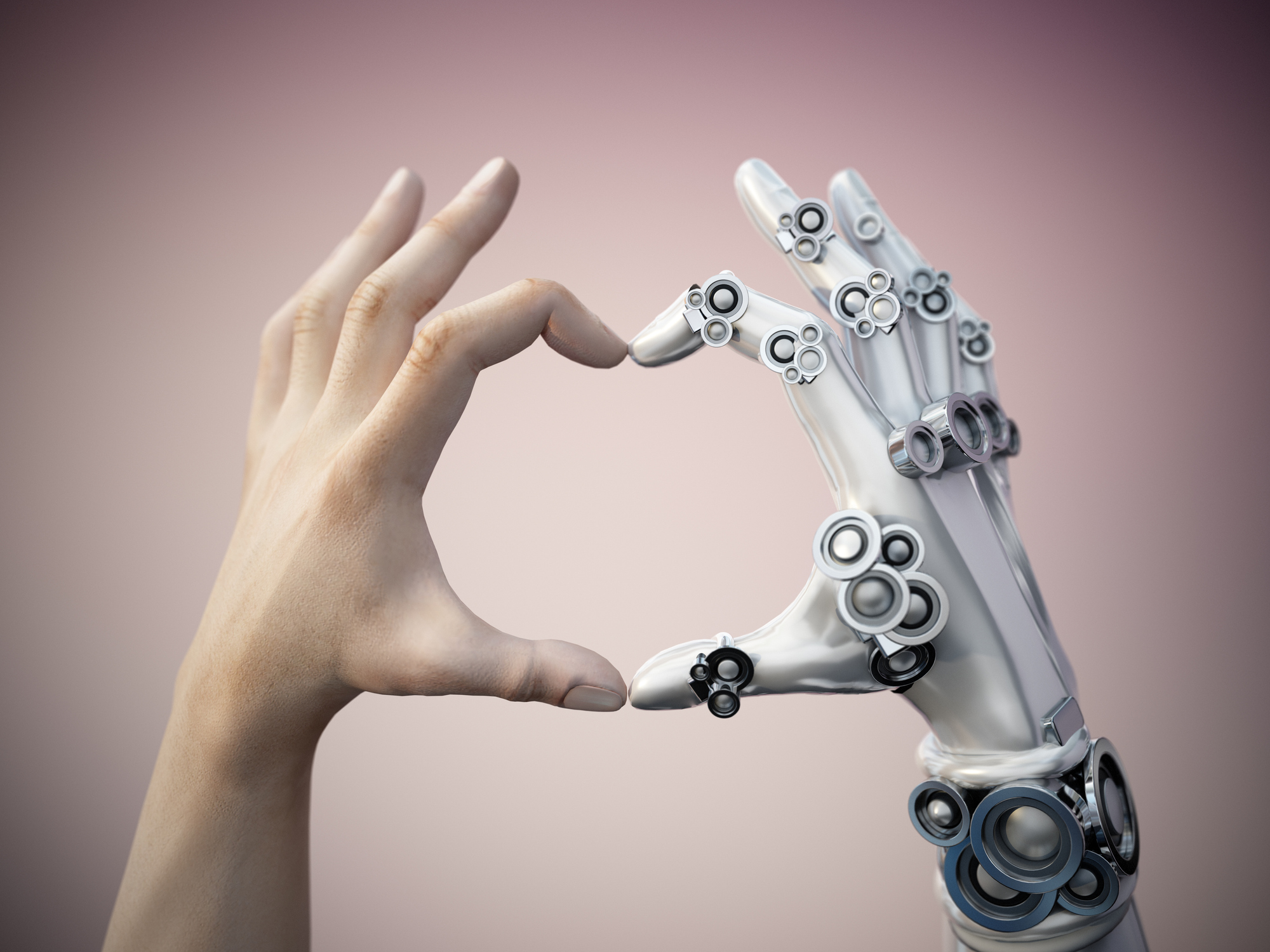
The AI Advantage: The Future of Work is Here, Here’s How to Thrive in it (Part 1)
Jeremy Hannah, ACC
Co-Founder | Coach | Global Talent Solutions Leader
Part 1 – A Practical Guide to Advancing Your Career Using AI as a Partner
Valerie and I lived in south Florida for 5 years, and we weathered a number of intense tropical storms and hurricane force winds while we were there. The stress of having to do all the preparation by going to the store to ensure we have provisions, bringing in outdoor tables and chairs, and closing hurricane shutters to protect windows was hard enough. This was then amplified as TV news and our phones blew up with predictions of devastation and images of damage already inflicted in the storm’s path. We were always wound up with anxiety for what was to come. We were lucky and were spared any serious damage along the way, but the “doom and gloom” of the whole ordeal was exhausting.
Why am I telling you all of this in an article about AI? In some ways, the rise of AI feels like that impending storm. The headlines are relentless, painting a picture of an automated future where human jobs are rendered obsolete by ever-smarter algorithms. But this narrative of fear, while understandable, is fundamentally flawed. The rise of AI in the workplace isn’t a distant future to be feared. It’s a present-day reality to be leveraged.
This article provides a clear path to move beyond fear and start taking advantage of AI’s power. We’ll explore how you can take ownership of the AI advantage to not just survive, but truly thrive in the new world of work.
The Invisible Hand: How AI is Already Shaping Your Career
Before we can leverage AI, we must first recognize that it’s already deeply embedded in the modern workplace. Organizations are not waiting for the future; they are using AI right now to make critical decisions that impact your career trajectory, often in ways you may not even see. This is happening Before we can leverage AI, we must first recognize that it’s already deeply embedded in the modern workplace. Organizations are not waiting for the future; they are using AI right now to make critical decisions that impact your career trajectory, often in ways you may not even see.
The most prominent example is in talent acquisition. If you’ve applied for a job at a medium or large company in the last few years, an Applicant Tracking System (ATS), read your resume first. 98% of Fortune 500 companies use an ATS, and 75%-85% of large companies are using AI in their recruiting process. These systems scan thousands of applications for keywords, skills, and experiences, acting as gatekeepers that decide which candidates get a human review.
But it doesn’t stop there. AI is increasingly used in:
- Performance Reviews: AI tools analyze digital footprints like project completion rates and communications to provide data for performance evaluations.
- Compensation and Promotion: Algorithms analyze market data and performance metrics to suggest salary adjustments and identify candidates for promotion.
- Employee Engagement: AI-powered sentiment analysis scans internal communications to gauge morale and predict attrition risks.
Recognizing this invisible infrastructure is the first step. If companies are using AI to manage talent, doesn’t it only seem fair that individuals should be using AI to manage their own careers?
AI as Your Personal Job Search Strategist
The job hunt can feel like sending applications into a void. AI transforms this experience from a game of chance into one of strategy. However, it’s important to acknowledge a growing challenge in the world of AI-powered recruitment: the ‘doom loop.’ As Dan Chait, CEO of the recruiting platform Greenhouse, told HR Brew, ‘It’s getting easier and easier to apply for jobs and harder and harder to get a job.’ Job seekers use AI to apply for hundreds of jobs, and in response, employers use AI to filter through the flood of applications. This creates a cycle where both sides are trying to outsmart the other, making it more difficult for qualified candidates to stand out.
Beating the ‘Resume Robots’
The biggest hurdle in many job searches is the ATS. These systems are not looking for the “best” candidate in a holistic sense; they are programmed to find the best match based on keywords. AI tools like ChatGPT, Claude, or specialized platforms like Jobscan are indispensable. By feeding both your resume and a specific job description into one of these tools, you can ask it to:
- Identify Keyword Gaps: The AI will highlight crucial skills and terms from the job description that are missing from your resume.
- Tailor Your Language: It can suggest rephrasing your accomplishments using the exact terminology the ATS is searching for, significantly increasing your chances of passing the initial screen.
While it’s crucial to understand how to get your resume past the initial AI screening, the goal isn’t just to trick the system. The most effective job seekers are those who can partner with AI to enhance their own skills and qualifications. Think of it as a collaboration. You bring the experience, the critical thinking, and the unique value proposition, and AI helps you articulate it in the most effective way. This approach is not only more authentic, but it also prepares you for the modern workplace, where the ability to work alongside AI is becoming a key skill.
Acing the Interview
Once you’ve secured an interview, AI can serve as your personal practice partner. Platforms like Vmock and Big Interview use AI to simulate a real interview experience. You can record yourself answering common questions, and the AI will provide instant feedback on:
- Content and Clarity: Does your answer directly address the question? Is it structured effectively (e.g., using the STAR method)?
- Pacing and Filler Words: Are you speaking too quickly or relying on “ums” and “ahs”?
- Body Language: Some tools even analyze facial expressions and eye contact to provide holistic feedback.
This practice demystifies the interview process, allowing you to walk in with polished answers and confidence.
Staying Motivated
Many of our clients are in some sort of career transition right now, and regardless of age or experience we hear many of the same frustrations about the job market. A job search is a journey, and staying motivated is key. Here are three tips to help you power through:
- Align Your Energy: Set a schedule and apply for jobs when you feel most energized. This ensures you’re at your best when tackling the process. If you are a morning person, grab your coffee and get right to it. If you feel motivated after a good workout, set aside an hour after your workout to channel that energy.
- Celebrate Small Wins: The job is the ultimate prize, but rewarding yourself for small daily goals (e.g., applying to three roles a day) can keep you going and prevent burnout. The rewards can be simple, too. If you love gardening, don’t go out into the garden until you have met your goal for the day. An outlet like this is also a great way to relieve the stress of the job hunt!
- Look at the Positive by Focusing on Your Skills: You are more than what’s on paper. Instead of focusing on what you lack, reframe your thinking. Your resume may not show that you have done the exact task listed in the job description, but you have transferable skills from past roles that may also demonstrate you can do the job. Don’t forget about skills and experiences you have gained through volunteerism.
It’s a fact of life that some of your applications will go out and you will never hear from the employer. Reframing the experience from one of dejection and hopelessness to one in which you can stay energized and motivated will get you through all of the ups and downs of your search.
Your AI-Powered Skills Development Coach
In today’s rapidly evolving job market, skills have a shorter half-life than ever before. The World Economic Forum’s Future of Jobs Report 2025 tells us that employers are prioritizing a blend of cognitive, interpersonal, and technological skills, highlighting the need for employees to be versatile, resilient and adaptable. Analytical/critical thinking remains the most critical skill, with almost 70% of companies saying that it is essential. It also states that global employers believe that 60% of workers will require training or upskilling before 2030. This creates a class of what some are calling “Superworkers”—individuals who have adapted to and embraced AI to become more productive and valuable.
Staying relevant requires a commitment to continuous learning, and AI is the perfect tool to guide this journey.
Pinpointing Your Growth Areas
Instead of guessing which skills to learn, use AI for a data-driven diagnosis. By analyzing your profile and target job descriptions, AI can identify your personal “skill gaps”. It can answer questions like, “What are the top skills needed to move from Marketing Manager to Director of Digital Strategy?”
Creating Personalized Learning Paths
Once these gaps are identified, AI-driven learning platforms like Coursera, edX, and LinkedIn Learning don’t just present a generic catalog of courses. They create personalized learning paths tailored to your specific goals and existing knowledge. They can recommend a specific sequence of courses, articles, and hands-on projects to help you master a new skill efficiently. This transforms upskilling from a daunting, open-ended task into a manageable, step-by-step plan.
Furthermore, the most important new skill might just be learning how to use AI itself. Proficiency in ‘prompt engineering’ (i.e., the art and science of communicating effectively with generative AI) is rapidly becoming a highly sought-after competency across all industries. As the HR Brew article points out, some companies, like the AI company Anthropic, are ‘looking for candidates who excel at collaborating with AI,’ and are even encouraging candidates to use AI ethically during the hiring process.
Automating the Mundane to Amplify the Human
Perhaps the most profound impact of AI on our daily work lives is its ability to liberate us from monotony. A 2023 report by the McKinsey Global Institute estimated that generative AI could automate 60-70% of the activities currently absorbing employees’ time. This is not a threat of replacement; it is an opportunity for elevation. As AI automates tasks, jobs are becoming less about a collection of tasks and more about overall accountability, where the human is responsible for the final outcome, using AI as a tool.
By delegating repetitive tasks (e.g., summarizing reports, writing routine emails, scheduling meetings) we free up our cognitive bandwidth for the work that machines cannot replicate. This is the “Human + Machine” model, a partnership where each plays to its strengths. When we are not bogged down by administrative drag, we have more time for:
- Deep Thinking and Strategy
- Creativity and Innovation
- Relationship Building and Empathy
AI becomes a partner in this process that amplifies our uniquely human capabilities.
Actionable Recommendations for Building Your AI Advantage
Knowledge is only potential power. Take these two steps this week to build your personal AI advantage.
- Conduct a Personal AI Audit. Identify three to five repetitive, time-consuming tasks in your work week. Research and experiment with one AI tool designed to automate one of those tasks (e.g., ChatGPT for summarizing text, Calendly for scheduling). The goal is to reclaim at least one hour of your week for higher-value work.
- Commit to a “Dual-Track” Skill Plan. Don’t just learn about AI; hone the human skills AI amplifies. Create a two-part learning goal:
- Track 1 (AI Fluency): Complete one introductory online course on a practical skill, such as “Prompt Engineering for Beginners” or “AI for Everyone” on platforms like LinkedIn Learning.
- Track 2 (Human Skills): Simultaneously, work on one critical soft skill. Volunteer to lead a project, join Toastmasters, or take a course on active listening. The synergy between technical fluency and human ingenuity is your ultimate competitive edge.
By taking these proactive steps, you can transform AI from a source of anxiety into your most powerful career co-pilot.
A Partner in Your Success
The narrative of AI as a job-destroying monster is compelling, but the more empowering and accurate narrative is one of agency, collaboration, and augmentation. However, navigating this shift can be daunting. The wave of new technology brings both incredible opportunities and undeniable challenges, impacting careers both positively and, unfortunately, negatively. It’s natural to feel a mix of excitement and apprehension. Staying motivated, positive, and strategic during such a monumental transition is a challenge in itself.
This is where a dedicated partner makes all the difference. At Viante Talent Solutions, we specialize in helping individuals navigate the complexities of the modern workplace. We work with you to move beyond fear and identify precisely how to leverage these powerful tools for your unique career path, build a resilient mindset, and develop the uniquely human skills that will set you apart. If you’re ready to turn uncertainty into action and build a thriving career, let’s start the conversation!
Individual action is only half the story. For a workforce to truly thrive, leaders must create an environment that encourages this innovation. In Part 2 of this series, we will provide a playbook for managers and executives on how to empower their teams for the AI era.
References
Bersin, J. (2024, September 8). OpenAI Gets Into Recruiting, While Job Market Struggles To Reinvent Itself. Josh Bersin. Retrieved from https://joshbersin.com/2025/09/openai-gets-into-recruiting-while-job-market-struggles-to-reinvent-itself/
Daugherty, P. R., & Wilson, H. J. (2018). Human + Machine: Reimagining Work in the Age of AI. Harvard Business Review Press.
McKinsey Global Institute. (2023, June 14). The economic potential of generative AI: The next productivity frontier. McKinsey & Company. Retrieved from https://www.mckinsey.com/capabilities/mckinsey-digital/our-insights/the-economic-potential-of-generative-ai-the-next-productivity-frontier
World Economic Forum. (2025, January). Future of Jobs Report 2025. Retrieved from https://www.weforum.org/publications/the-future-of-jobs-report-2025



